Lying in the foothills of the Rocky Mountains, Denver, Colorado is renowned for its iconic sights, unique culture, and breathtaking scenery.
Filled with art galleries, cultural events, sporting venues, and more, Denver has something for practically everyone.
More than 100,000 new residents have moved to Denver in the last decade.
If you are thinking of joining them, check out some of the biggest pros and cons of living in Denver below!
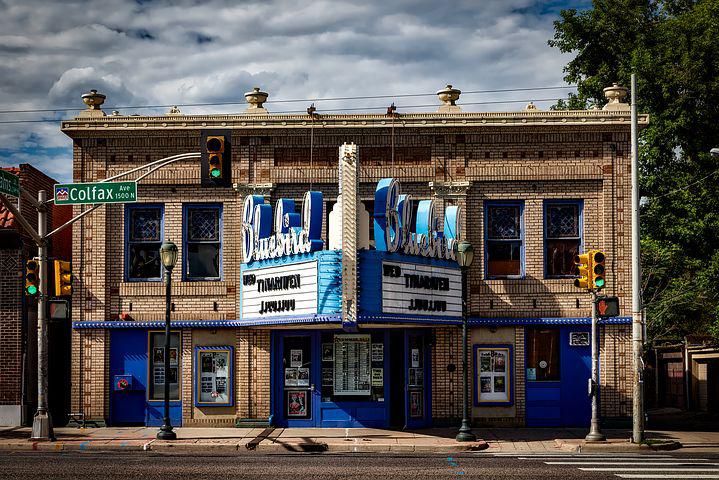
Contents
Pros of Living in Denver
1. The Population is Young
Denver culture is appealing to younger people and continues to attract them.
More than two-thirds of the local residents are 44 or younger.
This is a stark contrast to many cities with aging populations.
A younger population tends to mean more diverse neighborhoods, similar values, lots of entertainment, interesting events, and a more innovative job market.
If you are looking for a progressive place to live, Denver could be a perfect choice.
2. The City is Growing
Denver continues to grow extensively in recent years with increasing construction and residential settlement.
The housing market has been growing strong since 2013 and 2017 was the first year the city did not have double-digit growth.
There are still many relatively affordable housing options available for newcomers.
This also means that there are more jobs available, a vital part of considering where to live.
3. The Economy is Strong
Denver’s economy has higher-paying jobs than many other metro areas in the United States.
Many large corporations place their headquarters and main offices within the city limits.
This creates strong financial incentives for those looking for work and building a successful career.
The average income is $57,000, close to the national average, but there are many specialized opportunities in agriculture, aerospace, and other tech sectors.
4. Recreational Cannabis is Legal
Colorado was one of the earliest states to legalize recreational marijuana.
Denver has intentionally made itself an appealing home for the industry.
This gives opportunities for new careers as well as forms of leisure.
Cannabis sales generate revenues in one year higher than what some small nations generate.
There are few real barriers to access for cannabis enthusiasts because Colorado’s marijuana market is the oldest in the country.
5. The Weather is Pleasant
Denver typically has more than 300 sunny days a year.
Summers in the city can be sweltering but humidity levels are usually low.
The mountains offer a cooler respite for those who do not have or do not prefer air conditioning.
You can start to feel the temperature dropping in as little as 30 minutes of driving time.
6. There is a Major Professional Sports Scene
Denver is home to a team in every significant pro sports league in the U.S.
Sports enthusiasts love Denver because there is something to watch or play all year long.
From baseball and hockey to basketball, hockey, and soccer, Denver offers it all.
There are even two pro lacrosse teams located in the city.
Winter sports thrive and pros are active in Aspen each year, just a four-hour drive away.
7. Cost of Living is Low
Denver’s cost of living is lower than many other metro areas.
This is despite having issues with high rent and exorbitant real estate prices.
After rent or mortgage payments, $700 is typically enough to cover your other common expenses.
This is less than half what it costs to live in other cities like Seattle and San Francisco, and is significantly cheaper than living in Washington DC.
8. There are Countless Weekend Getaways Nearby
Denver residents love having fun and there are innumerable places just outside the city that are perfect for weekend trips.
Many globally renowned outdoor locations like Beaver Creek, Crested Butte, Winter Park, Grand Junction, Vail, the Arapahoe Basin, and Breckenridge are within just an hour or two of the city.
With more than 200 mountain peaks visible from the city itself, it’s easy to reach nature.
Cons of Living in Denver
1. The Cost of Housing Can Be Prohibitive
Denver’s cost of living might be lower than some places but this often excludes the cost of housing.
Rents and mortgages within Denver are high, and numerous neighborhoods have median incomes too low to buy houses there.
Without securing a high-wage job, for which opportunities are growing, you can end up with a long commute to find good work or affordable housing.
2. The Altitude
Denver is 5,280 feet above sea level and this is not for everyone.
There is a period of time necessary for adjusting to the thinner atmosphere a mile above sea level.
It is possible for some people to become sick from the altitude, taking several weeks to recover.
Drinking enough water and taking it easy on physical activity helps.
Sunscreen is a must even in the winter, as sunburns in February are easily possible.
3. Denver Traffic is Rough
Denver has packed traffic year-round.
Main thoroughfares are always busy during the week, filled with commuters.
Weekends add tourists to the mix as well as residents heading toward the mountains— and returning before work on Monday.
90-minute drives can easily become up to six hours on Fridays and other peak busy times.
You will need to account for traffic if you want to get where you’re going on time and in one piece.
4. Weather Can Be Unpredictable
Denver has high heat in the summer with a pretty relaxing, temperate fall.
Some seasons cut this short with sudden early snowstorms.
These storms can arrive as early as September.
Thunderstorms are common, often accompanied by hail.
Winter snows are almost always measured in feet rather than inches, especially late in the season.
Since you can still get sunburned during the winter months because of the high altitude, you will also need to stock up on sunscreen.
5. The Urban Landscape Needs Work
Denver’s urban landscape is pretty boring.
Though it is home to professional sports, an internationally-renowned zoo, and lots of great museums, the city is blandly constructed.
The architecture is not attractive or pleasant to explore, especially in comparison to the surrounding natural beauty.
Residents are beginning to develop an artistic culture to beautify architecture and the city landscape.
Nevertheless, this work is slow going.
6. There Aren’t Enough Starter Homes and Apartments
Denver does not offer a sufficient number of affordable starting homes for the average family.
Real estate developers advertise new homes as “starters” despite being $325,000 or even more.
Housing prices in affordable neighborhoods likely are not your first pick and housing may be inadequate for your family size.
Most people who do not want to rent long-term move north to find better housing options.
7. Public Transit is Severely Lacking
Denver is a city where you should probably own a car.
The city has light rail and a decent bus system.
But the infrastructure underlying these industries is far from adequate.
Accessing public transit can be a real pain for those outside the center of the city.
Only one east-west thoroughfare goes into the mountains.
Traveling on public transit while you’re in a rush is definitely to be avoided, which contributes to the traffic problems in the city.
8. Surprisingly, there is a Lack of Outdoor Variety
Denver is beautiful and there are no two ways about it.
Skiers love it for its proximity to ski resorts accessible by Amtrak.
Cyclists and hikers come from all over to experience the mountain trails.
Yet, other types of outdoor options can be basically nonexistent.
There are few real options for those who love beaches and oceans, as well as water activities.
Unless you really love living in the mountains, Denver may grow stale after a time.
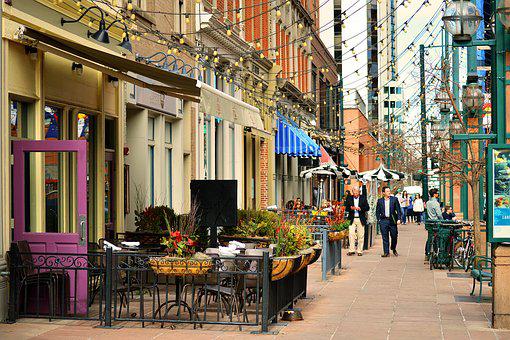
Pros and Cons of Living in Denver, Colorado – Summary Table
| Pros of Living in Denver | Cons of Living in Denver |
|---|---|
| 1. The Population is Young | 1. The Cost of Housing Can Be Prohibitive |
| 2. The City is Growing | 2. The Altitude |
| 3. The Economy is Strong | 3. Denver Traffic is Rough |
| 4. Recreational Cannabis is Legal | 4. Weather Can Be Unpredictable |
| 5. The Weather is Pleasant | 5. The Urban Landscape Needs Work |
| 6. There is a Major Professional Sports Scene | 6. There Aren’t Enough Starter Homes and Apartments |
| 7. Cost of Living is Low | 7. Public Transit is Severely Lacking |
| 8. There are Countless Weekend Getaways Nearby | 8. Surprisingly, there is a Lack of Outdoor Variety |
Making the Move to Denver
Denver is a unique city with a culture like nowhere else.
It is famed for its progressive, welcoming culture and breathtaking natural beauty.
But living there can also pose unique problems in the form of poor infrastructure, a struggling housing market, and bizarre weather.
Weigh the pros and cons carefully before deciding if Denver is right for you.
Denver Safety Overview
READ THE FULL REPORT: Denver Safety Review
Safety Index: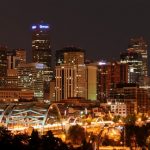
- OVERALL RISK: MEDIUM
- TRANSPORT & TAXIS RISK: LOW
- PICKPOCKETS RISK: MEDIUM
- NATURAL DISASTERS RISK: MEDIUM
- MUGGING RISK: MEDIUM
- TERRORISM RISK: MEDIUM
- SCAMS RISK: LOW
- WOMEN TRAVELERS RISK: LOW
Frequently Asked Questions
Where Do Most New Residents Come From?
Denver attracts newcomers from New York, Dallas, Atlanta, and many other metro areas.
Boulder and Colorado Springs also bring in many new faces, as well as Kansas City.
That said, people move to and visit Denver from all over the United States and even from outside the country.
What are Denver Taxes Like?
Denver’s minimum combined sales tax rate is 8.81 percent.
This is the total state, county, and city rates combined in one.
You can expect to spend more on sales tax than in other Colorado cities.
Nevertheless, the tax burden is about in the middle when compared to the rest of the country.
Sales tax is not generally seen as one of the major expenses of living in Denver.
Which Neighborhood is Best for Newcomers?
Denver neighborhoods are all different, so none is right for everybody.
They look, feel, and residents live a bit differently.
Capitol Hill, called Cap Hill by locals, is densely populated with a blend of modern and historic aspects.
River North Arts District, called RiNo, has numerous warehouses repurposed for art galleries, breweries, concert halls, restaurants, and more.
LoDo has tons of nightlife as well as sports and shopping outlets.
Where is Denver Located?
Denver incorporates six Colorado counties: Jefferson, Adams, Broomfield, Arapahoe, Douglas, and Denver.
The city is part of the Front Range Urban Corridor, a term used to describe the furthest east section of the Southern Rocky Mountains.
What is Denver’s Time Zone?
Like the rest of Colorado, Denver is on Mountain Daylight Time (MDT).
This puts the city two hours behind New York City and one hour ahead of Los Angeles.
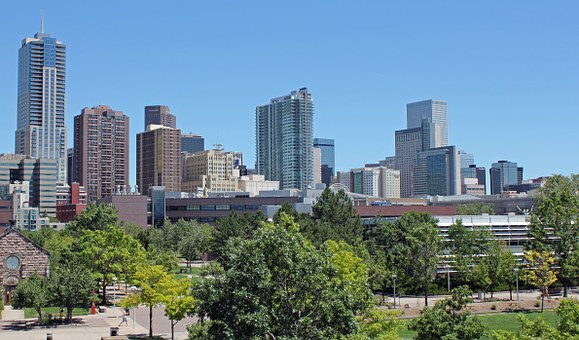
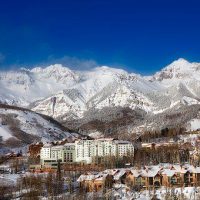


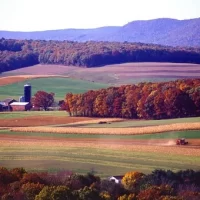
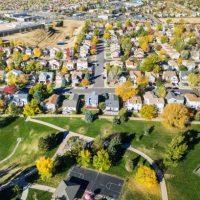
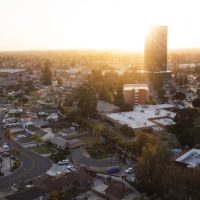





You missed the wildfires out here and the fact that half of the year the air quality is terrible because of it.